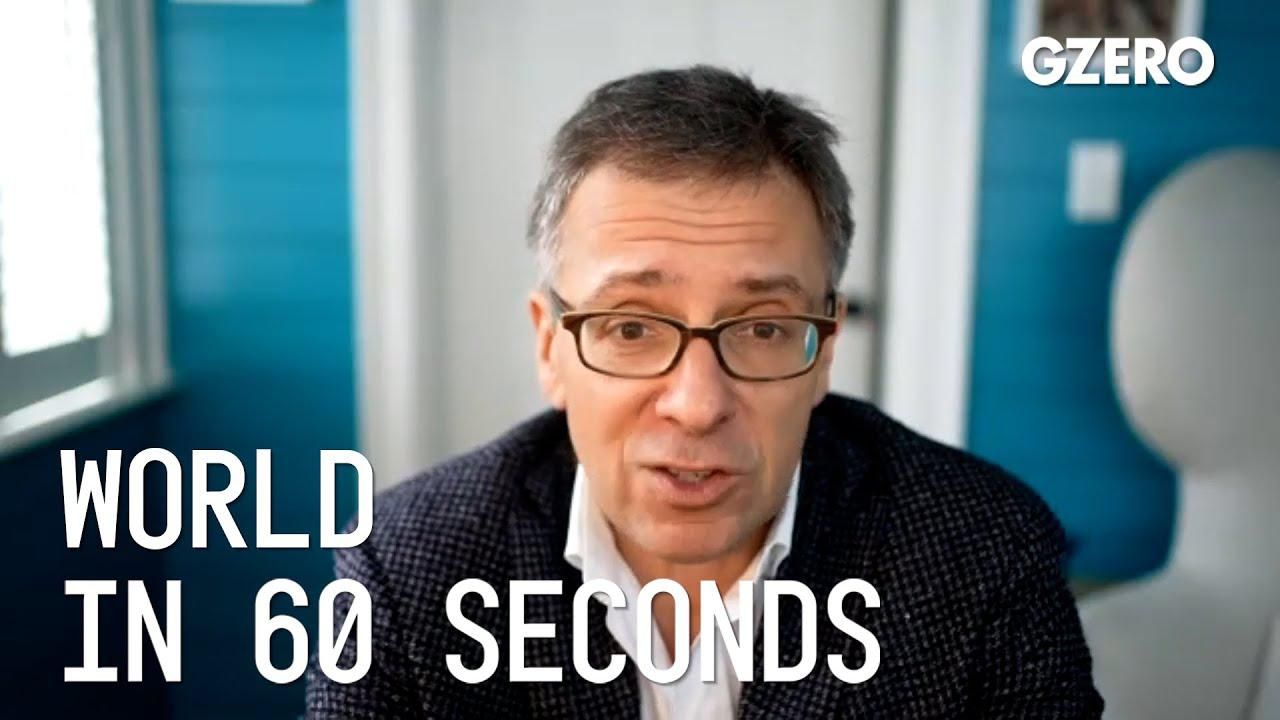
After Austrian Chancellor Nehammer's meeting with Putin, will more peace talks become possible? Is Shanghai's lockdown a humanitarian crisis? With the US inflation rate rising to 8.5%, what will happen if imposing further sanctions against Russia? Ian Bremmer shares his insights on global politics this week on World In :60.
After Austrian Chancellor Nehammer's meeting with Putin, will more peace talks become possible?
Was the first time a foreign leader from Europe actually met Putin in person in the seven weeks since the war has occurred. Did not go anywhere, no optimism, lots of war crimes, and the Russians are sending more troops into the Donbas as we speak. It seems pretty clear that Putin intends to declare victory. And before that happens, it is hard to imagine any utility of further negotiations. Doesn't mean you can't try. But I think we have to wait, frankly, until the military situation on the ground plays out more fully and then perhaps we might be able to get some form of frozen conflict or ceasefire. That's kind of where we are right now.
Is Shanghai's lockdown a humanitarian crisis?
Yeah, I think it is. 27 million people that are locked down, one of the world's largest cities, the wealthiest in China, and they can't leave their apartments. If there is one case in a large compound, that's it. It's incredible that they're able to test as effectively as they are and there have been some food shortages, but certainly nobody is starving. The fact that children have been separated from families, I would consider that a humanitarian crisis. There is some good news.There are some therapeutics that look to be about as effective as Pfizer's that are China made. And that means that in relatively short order you should be able to produce those at scale. That would make a huge difference. Maybe by the end of third quarter, you could have tens of millions of doses, and that could allow the Chinese to move away from zero-COVID, but they refuse to use Western vaccines. They have the tools right now that are available. They refuse to use them. I think when a government does that and forces this kind of hardship on its citizens, I consider that to be humanitarian crisis.
With the US inflation rate rising to 8.5%, what will happen if imposing further sanctions against Russia?
Well, first of all, the Americans have pretty much cut off the Russians completely. About all the sanctions the US can put on economically are there. The Europeans can cut off oil. They probably will. Gas, that'll take longer. But in terms of US engagement with Russia it's there. So I don't see further economic sanctions from the US mattering very much. Also, keep in mind, American inflation's higher than European inflation. Most American inflation of what we're experiencing now happened before the Russian invasion not after, in large part because of the pandemic and because of the massive US spend. That trillions and trillions of dollars in the hands of businesses and average Americans meant that more, it meant that the wages have gone up. It means that more people have some savings. It means that people could get through the two years of stop, start, stop, start of the US economy. But also means highest inflation levels we've had in 40 years. And I think that's going to persist. The Russia crisis isn't making it any easier, but it's not the largest piece of why we're experiencing inflation right now.
- What We're Watching: Russia's consolidation in eastern Ukraine ... ›
- The Graphic Truth: US inflation just keeps on climbing - GZERO Media ›
- The Graphic Truth: Piling sanctions on Russia - GZERO Media ›
- What is China's zero COVID policy? - GZERO Media ›
- China isn't budging on zero-COVID - GZERO Media ›
- The Graphic Truth: US inflation skyrockets - GZERO Media ›
- The Graphic Truth: US inflation slows a bit, but ... - GZERO Media ›
- The Graphic Truth: US inflation slows a bit, but ... - GZERO Media ›